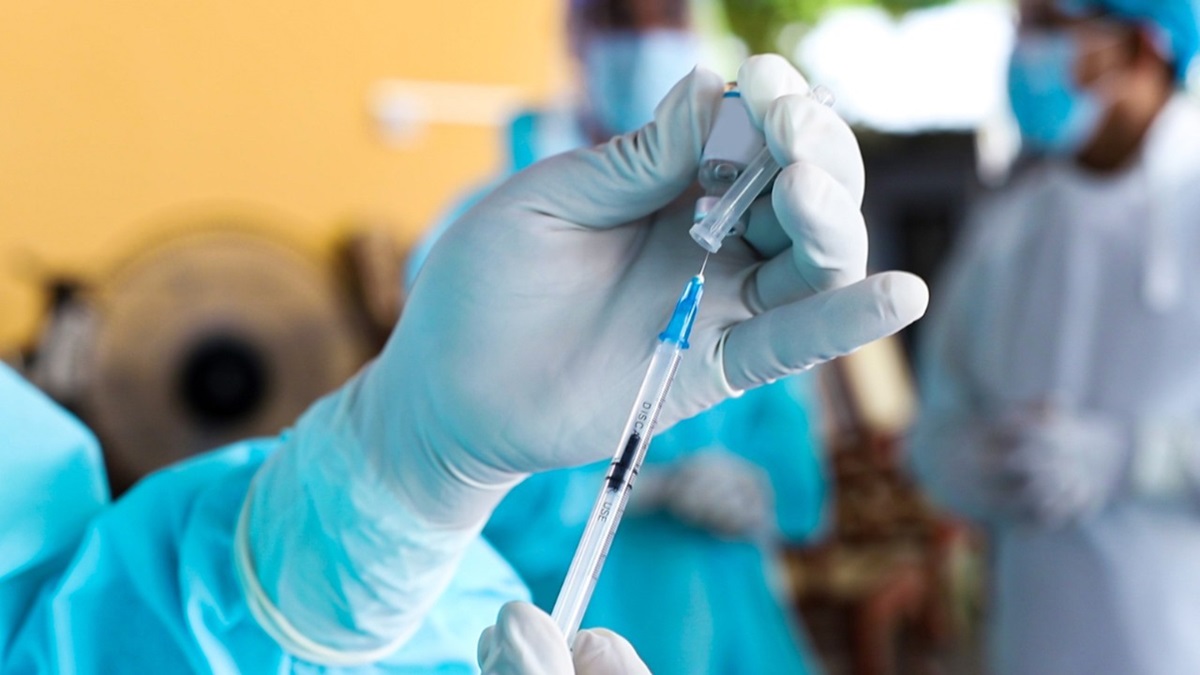

The 17 million Americans who received the one-shot Johnson & Johnson COVID-19 vaccine are less protected against serious illness and hospitalization than people who got an mRNA vaccine, according to a new CDC study.
The latest data suggests that those who got the Johnson & Johnson vaccine should get a booster dose of the Pfizer or Moderna vaccine — or maybe even two boosters for the best protection.
“One priority is making sure that people who only received one dose [of the Johnson & Johnson vaccine] are aware that they should go and get, preferably, a messenger RNA vaccine,” Natalie Dean, PhD, a biostatistician at Emory University, told The Washington Post.
The CDC research team looked at how well mix-and-match vaccine booster combinations worked after one dose of the Johnson & Johnson vaccine. They used data from more than 80,000 emergency room and urgent care visits, as well as more than 25,000 hospitalizations, in 10 states between mid-December 2021 and early March 2022, when the Omicron variant was dominant.
The researchers found that three shots of messenger RNA vaccines (either Pfizer or Moderna) were 83% effective in preventing emergency room or urgent care visits, followed by 79% for a Johnson & Johnson vaccine plus a messenger RNA booster. Two J&J shots were 54% effective, and a single J&J shot was 24% effective.
Protection against hospitalization was slightly higher or about the same, the report showed. Three doses of the Pfizer or Moderna vaccine were 90% effective, followed by 78% for a Johnson & Johnson vaccine plus a messenger RNA booster. Two J&J shots were 67% effective, and a single J&J shot was 31% effective against hospitalization.
Shortly after the study’s release, the CDC changed its recommendations to allow a second booster of the Pfizer or Moderna shots for people who got the J&J vaccine. The CDC didn’t formally recommend the second booster but said people can receive one if they choose, The Washington Post reported. More than 1.3 million people have received the Johnson & Johnson vaccine and booster.
Based on the latest data, public health experts have called for clearer recommendations for boosters. In October 2021, the CDC said Americans could choose any of the available vaccine boosters, regardless of their original shot. In December, the CDC updated its guidance to recommend the Pfizer or Moderna booster over the Johnson & Johnson shot due to the risk of a rare but potentially life-threatening blood clot issue.
Now the data is becoming clearer about how well the different vaccines work, but Americans may still be confused about which shot to take next — or if they’re eligible for another booster.
“Right now, there aren’t recommendations for people who got two doses of J&J to get a third messenger RNA shot,” William Moss, MD, executive director of the International Vaccine Access Center at Johns Hopkins University, told the newspaper.
“The messenger RNA vaccines seem to be providing more protection,” he said. “What I’d like to see is a very simple recommendation: that everyone get three doses, and they should be messenger RNA vaccines.”
more recommended stories
 CTNNB1 Syndrome Study Explores Beta-Catenin Defects
CTNNB1 Syndrome Study Explores Beta-Catenin DefectsKey Takeaways Researchers in Spain are.
 Tuberculosis Breakthrough with Experimental Antibiotics
Tuberculosis Breakthrough with Experimental AntibioticsKey Takeaways Experimental antibiotics disrupt a.
 National Healthy Longevity Trial Receives Federal Support
National Healthy Longevity Trial Receives Federal SupportKey Summary Up to $38 million.
 Red Blood Cells Improve Glucose Tolerance Under Hypoxia
Red Blood Cells Improve Glucose Tolerance Under HypoxiaKey Takeaways for Clinicians Chronic hypoxia.
 Nanoplastics in Brain Tissue and Neurological Risk
Nanoplastics in Brain Tissue and Neurological RiskKey Takeaways for HCPs Nanoplastics are.
 AI Predicts Chronic GVHD Risk After Stem Cell Transplant
AI Predicts Chronic GVHD Risk After Stem Cell TransplantKey Takeaways A new AI-driven tool,.
 Red Meat Consumption Linked to Higher Diabetes Odds
Red Meat Consumption Linked to Higher Diabetes OddsKey Takeaways Higher intake of total,.
 Pediatric Crohn’s Disease Microbial Signature Identified
Pediatric Crohn’s Disease Microbial Signature IdentifiedKey Points at a Glance NYU.
 Nanovaccine Design Boosts Immune Attack on HPV Tumors
Nanovaccine Design Boosts Immune Attack on HPV TumorsKey Highlights Reconfiguring peptide orientation significantly.
 High-Fat Diets Cause Damage to Metabolic Health
High-Fat Diets Cause Damage to Metabolic HealthKey Points Takeaways High-fat and ketogenic.

Leave a Comment